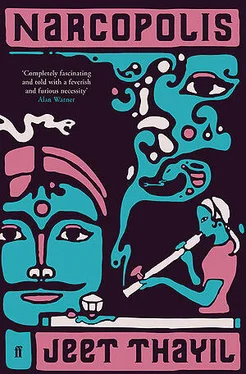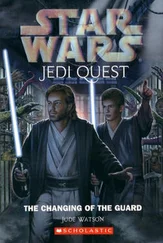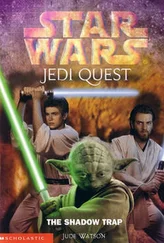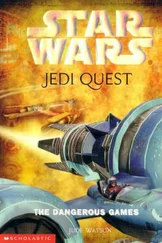Lee thought: Why do you continue to stay here? But he shook his head. No, he said.
Tung said, ‘What are you doing here?’
At this all three men looked at Lee as if he had just then appeared out of thin air.
‘I’ve been sent by the Party to look carefully at what is happening in Wuhan,’ said Lee. ‘I am expected to make a report and that’s as far as my responsibility goes.’
Tung was shaking his head even before Lee finished. ‘No,’ he said. ‘No, no, no.’
It was then that Lee chose to make a comment about the Mao Tse-tung Thought Million Fighting Wuhan Revolutionary Heroic Workers Troops, a coalition the general was known to support, though not openly. The Workers Troops was larger than its older rival, the Wuhan Area Proletarian Mao Tse-tung Thought Fighting Workers Centre, which had the support of Peking. Lee said he thought the Workers Troops was the cause of much of the rioting and disorder on the streets.
Tung made a spitting sound. ‘You are ignorant,’ he said. ‘It is the Workers Centre that has caused unrest in Wuhan.’
Lee nodded slowly. Then he said, ‘There’s talk in Peking that the Workers Troops should be disbanded.’
At this the general got to his feet and gestured that Lee should do the same. ‘This meeting is at an end,’ he said. It was the first time he’d spoken in Lee’s presence and it served as a kind of signal to Tung, who threw his cigarette to the floor and shouted a slogan against the Workers Centre. Lee wasn’t sure what he was shouting because Tung was too angry to articulate his words properly. He marched around the room and stopped in front of Lee.
‘I am prepared to sacrifice my life,’ Tung said. ‘We are soldiers. This is what we have trained for, self-sacrifice. You tell them that.’ Then he walked out and let the door bang behind him.
Chapter Seven Twice Abducted
When Lee returned to his hotel and placed a call to Pang Mei it was well past midnight. He heard the phone ring at the engineering college hostel and then he heard a siren and people shouting in the courtyard below. Wei? said the switchboard operator in Peking. The noise in the courtyard became louder and there were announcements on a public address system. Lee hung up and went to the window. A fire truck and a covered transport vehicle were entering the hotel’s gates, and a loudspeaker van and men carrying rifles and choppers and home-made spears. He went to the door and locked it and placed another call. He was talking to the receptionist at the commissariat when they broke open the door and punched him to the floor. He got up and a man who looked somehow familiar slapped him on the side of the head, so hard that his glasses flew off his face and landed on the carpet halfway across the room. There was a ringing in his ears and someone hit him low in the stomach and someone else kicked his feet out from under him. Lee landed on his back. There were flecks of blood on his shirt and his ribs felt bruised. They pulled him to his feet and bound his hands behind his back. Then they marched him out of the building and towards one of the vans. The lobby was in pandemonium. The hotel’s official cars had been overturned and gutted and a tree in the courtyard was ablaze. The staff stood under the portico. As Lee was brought down the steps he saw a man run towards the gate. A small mob set upon him with bare hands and rifle butts and brought him down. The man shouted: Help me, comrades, help me. Who was he talking to? How odd, thought Lee, that fear should make you ask for help from the exact source of your torment. A man with a chopper stepped up and cut off the fallen man’s arms with precise and economical strokes. The man twitched and shivered as he gazed at his severed arms and the ropes of blood that joined them. His lips moved and the words he spoke, if at all he was speaking, were inaudible. Blood pooled around his hips. He sat up and vomited and the crowd stepped back in disgust. Then the man with the chopper cut off his head, though this took some effort because the chopper was no longer sharp and wouldn’t cut through the neck bones.
Lee was the only prisoner but there were so many men escorting him that the van was cramped and humid. His clothes were soaked through with blood and perspiration and without his glasses he felt crippled, though he was able to see the faces of his abductors clearly enough. He wondered what time it was and then he thought about Pang Mei’s complicated virginity and for some reason the song-like words he had heard earlier that day — or had it been yesterday? — repeated in his head like a prayer, Time is a bomb; the world is on fire. He couldn’t remember the rest of the words, though he heard very clearly the voice of the woman who had recited them. The men in the vehicle spoke as if he was not there, or as if he was already dead. They talked about barbecue pork and home-made rice wine, about how long one could swim comfortably in the summer before the silt of the river weighed you down (no more than an hour), about the comparative advantages of cards over mahjong (less wastage of time, more chances of quick money), about the efficacy of deer penis as an aphrodisiac (excellent), and about Lee’s fate, whether he would be executed publicly or disposed of with minimum fanfare (the consensus: publicly, with a shot to the back of the neck). Kaolu, said one of the men, and it was then that Lee recognized the man who had been in General Lo’s office. His abductors were soldiers. They wore armbands that identified them as members of the Workers Troops but in fact they were soldiers; no, they were mutineers. It was they who were already dead, thought Lee.
*
They took him to a building that looked like the garrison headquarters; they took him to a cell and left him alone. Some hours later, two men came in and stripped off his clothes and beat him, very methodically, until he passed out. He was woken by pain. He knew he’d been unconscious for some time, minutes maybe, or hours; it was hard to tell because time had expanded. Every part of his body throbbed or burned. The pain slowed time and a single moment became something impossibly complex that took all his resources to endure. His pulse throbbed in his ears and hours passed between each beat. He slept and woke and slept again and he felt like a visitor to an unknown solar system where time speeded up and slowed down at random intervals. They gave him congee and he slept. And then the men returned and beat him again. This was how he knew a day had passed, two days, three and four days. He was settling into a kind of routine, he was beginning to focus his mind around the pain and he was preparing himself for worse, when, suddenly, a new set of abductors took over from the old. They opened the door of his cell and someone he hadn’t seen before said, Is this him? Yes, said Tung, whose hands were tied. The new abductors put Lee in a jeep and took him on a long drive. It was night-time and the stars were low in the sky. There were more stars than he had ever thought possible, so many stars that it was easy to lose himself among them, all he had to do was let his head loll back on the seat and look up at the infinite. There was a smell of eucalyptus and manure. He heard birds and wondered why they were awake in the middle of the night. Were they as confused as he by the hitherto unseen elasticity of time? The new abductors drove out of Wuhan and stopped on a dirt road that curved upwards into the hills. They didn’t beat him. They fed him and gave him a change of clothes and put a bandage around his ribs. They drove some more and stopped at an airfield, where they put him on a plane to Peking.
*
He made phone calls from the hospital and discovered that Pang Mei was no longer working in the commissariat or registered at the engineering hostel as a resident. He made more calls. He learned that a teacher he knew, one of his father’s old friends, had committed suicide. Others had simply vanished and were thought to be dead. He was still being treated for his injuries when Wei Kuo-ching came to see him.
Читать дальше












